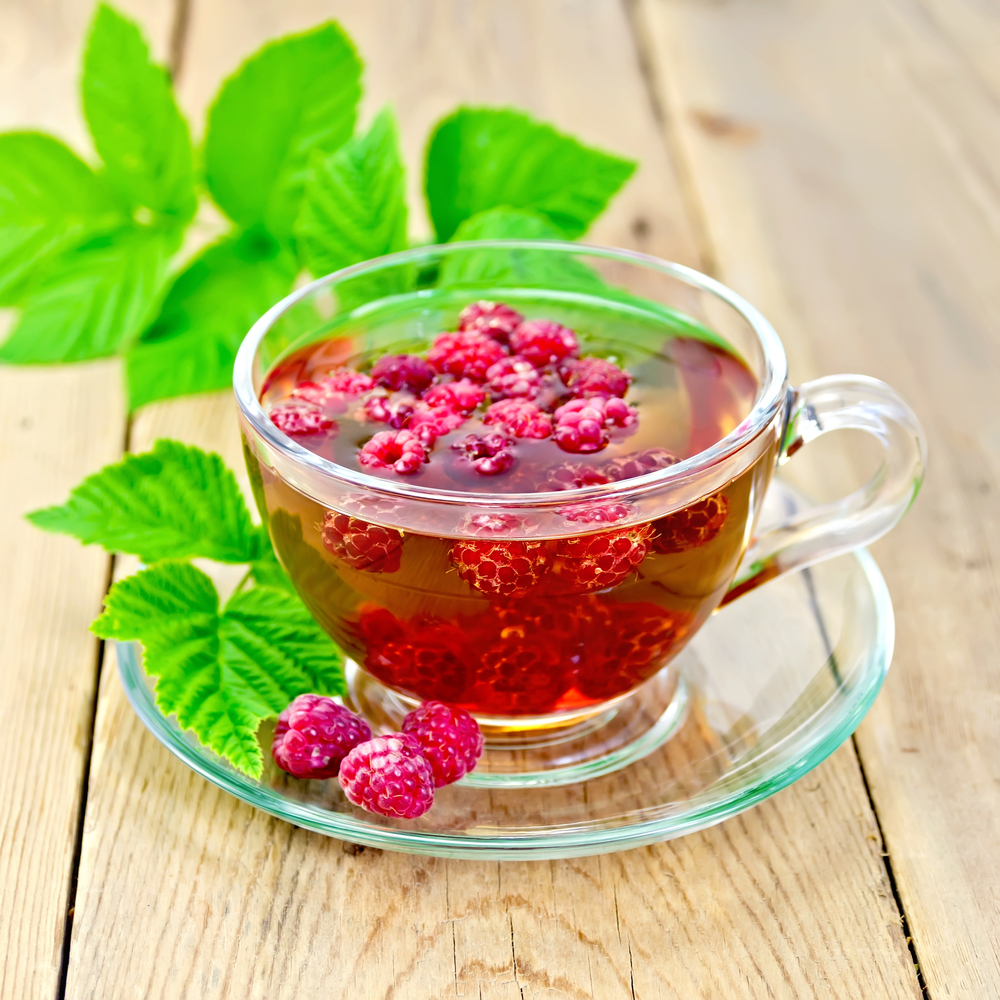Red Raspberry Leaf Tea In Pregnancy: Benefits, Safety, And Expert Insights
Pregnancy is a transformative journey, and ensuring the health and well-being of both mother and baby is paramount. One popular natural remedy that has gained attention is red raspberry leaf tea. Many women turn to this herbal tea during pregnancy, believing it offers numerous benefits. But is it truly safe? And what does the research say?
Red raspberry leaf tea has been used for centuries as a traditional remedy, particularly in pregnancy. Advocates claim it supports uterine health, eases labor, and provides essential nutrients. However, with so much information available online, it's crucial to separate fact from fiction.
In this comprehensive guide, we'll delve into the science behind red raspberry leaf tea, its potential benefits, safety concerns, and expert recommendations. Whether you're considering incorporating this tea into your pregnancy routine or simply curious, this article will provide you with the insights you need.
Read also:Discovering Gabi Butler Facts A Deep Dive Into Her Life And Achievements
Table of Contents
- Introduction to Red Raspberry Leaf Tea
- Benefits of Red Raspberry Leaf Tea in Pregnancy
- Safety Concerns During Pregnancy
- Dosage Guidelines for Pregnant Women
- Scientific Studies and Research
- Common Myths About Red Raspberry Leaf Tea
- How to Prepare Red Raspberry Leaf Tea
- Alternative Herbal Options
- Expert Advice and Recommendations
- Conclusion and Next Steps
Introduction to Red Raspberry Leaf Tea
Red raspberry leaf tea is derived from the leaves of the Rubus idaeus plant, commonly known as the red raspberry. This herbal tea has been used for centuries in traditional medicine, particularly for women's health. Its rich history dates back to ancient cultures, where it was believed to promote reproductive health and ease childbirth.
Why Is It Popular in Pregnancy?
One of the primary reasons red raspberry leaf tea is favored during pregnancy is its reputation for supporting uterine health. The tea contains compounds such as fragarine, which is believed to tone the uterine muscles. This toning effect is thought to prepare the uterus for labor, potentially leading to a smoother delivery process.
Key Ingredients
- Fragarine: A compound that promotes uterine muscle tone.
- Tannins: Antioxidants that provide anti-inflammatory benefits.
- Vitamins and Minerals: Rich in calcium, magnesium, and iron, essential for pregnancy.
Benefits of Red Raspberry Leaf Tea in Pregnancy
While the benefits of red raspberry leaf tea are often praised, it's important to understand the science behind these claims. Below are some of the potential advantages of incorporating this tea into your pregnancy routine.
1. Supports Uterine Health
Red raspberry leaf tea is believed to strengthen the uterine muscles, which may help reduce the intensity of labor contractions. This toning effect is thought to improve the efficiency of labor, potentially shortening the duration of delivery.
2. Nutrient-Rich Profile
The tea is packed with essential nutrients such as calcium, magnesium, and iron, all of which are vital for a healthy pregnancy. These nutrients support fetal development and help maintain maternal health.
3. May Reduce Morning Sickness
Some women report that red raspberry leaf tea helps alleviate nausea and vomiting, common symptoms during early pregnancy. While scientific evidence is limited, its soothing properties may provide relief for some.
Read also:Is Kaitlin Olson Related To The Olson Twins Unveiling The Truth Behind The Confusion
Safety Concerns During Pregnancy
While red raspberry leaf tea is generally considered safe, there are certain precautions to keep in mind. As with any herbal remedy, it's important to consult your healthcare provider before use, especially during pregnancy.
Potential Risks
- Stimulating Contractions: High doses of red raspberry leaf tea may stimulate uterine contractions, which could be risky in early pregnancy.
- Interactions with Medications: The tea may interact with certain medications, so it's essential to discuss with your doctor if you're taking any prescriptions.
- Quality Control: Ensure you purchase high-quality tea from reputable sources to avoid contamination or adulteration.
Dosage Guidelines for Pregnant Women
When it comes to red raspberry leaf tea, moderation is key. Experts recommend starting with small doses and gradually increasing as needed. Here are some general guidelines:
- Begin with one cup per day during the second trimester.
- Increase to two to three cups per day during the third trimester.
- Avoid consumption in the first trimester unless advised by a healthcare professional.
Always listen to your body and discontinue use if you experience any adverse effects.
Scientific Studies and Research
Several studies have explored the effects of red raspberry leaf tea during pregnancy. While the evidence is promising, more research is needed to fully understand its benefits and risks.
Key Findings
- A study published in the Journal of Midwifery & Women's Health found that women who consumed red raspberry leaf tea experienced shorter labor durations.
- Research conducted by the Australian College of Midwives indicated that the tea may reduce the likelihood of pre-term labor.
- However, a review in the British Journal of Midwifery highlighted the need for larger, randomized trials to confirm these findings.
Common Myths About Red Raspberry Leaf Tea
There are several misconceptions surrounding red raspberry leaf tea, particularly in pregnancy. Let's debunk some of the most common myths:
Myth 1: It Induces Labor
Contrary to popular belief, red raspberry leaf tea does not induce labor. Instead, it tones the uterine muscles, potentially preparing the body for labor.
Myth 2: It's Safe in All Trimesters
While the tea is generally safe, it's best avoided in the first trimester due to the risk of stimulating contractions. Always consult your healthcare provider before use.
How to Prepare Red Raspberry Leaf Tea
Preparing red raspberry leaf tea is simple and can be done at home. Follow these steps for a delicious and nutritious cup:
- Boil fresh water in a kettle.
- Add one to two teaspoons of dried red raspberry leaf to a tea infuser or directly into a cup.
- Pour the hot water over the leaves and let it steep for 10-15 minutes.
- Strain the tea and enjoy it plain or with a touch of honey for added sweetness.
Alternative Herbal Options
If you're looking for other herbal teas to support your pregnancy, consider these alternatives:
- Ginger Tea: Known for its anti-nausea properties, ginger tea can help alleviate morning sickness.
- Chamomile Tea: A calming option that promotes relaxation and better sleep.
- Lemon Balm Tea: Offers soothing effects and may reduce anxiety during pregnancy.
Expert Advice and Recommendations
When it comes to incorporating red raspberry leaf tea into your pregnancy routine, expert advice is invaluable. Below are some recommendations from leading healthcare professionals:
Consult Your Doctor
Always seek approval from your healthcare provider before starting any new supplement or herbal remedy during pregnancy.
Choose High-Quality Products
Purchase red raspberry leaf tea from reputable brands that prioritize quality and safety. Look for organic options to minimize exposure to pesticides.
Monitor Your Response
Pay attention to how your body reacts to the tea. If you experience any discomfort or adverse effects, discontinue use immediately and consult your doctor.
Conclusion and Next Steps
Red raspberry leaf tea is a popular choice for pregnant women seeking natural support during their journey. Its potential benefits include supporting uterine health, providing essential nutrients, and easing labor. However, it's crucial to approach its use with caution and under the guidance of a healthcare professional.
To ensure the best outcomes, follow dosage guidelines, choose high-quality products, and stay informed about the latest research. By making informed decisions, you can enjoy the potential advantages of red raspberry leaf tea while prioritizing your health and the well-being of your baby.
We encourage you to share your thoughts and experiences in the comments below. Have you tried red raspberry leaf tea during pregnancy? What were your results? And don't forget to explore other articles on our site for more insights into pregnancy and wellness.
Article Recommendations


